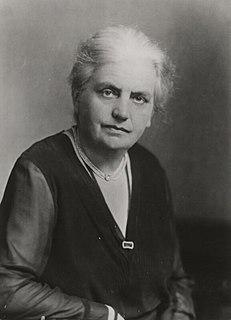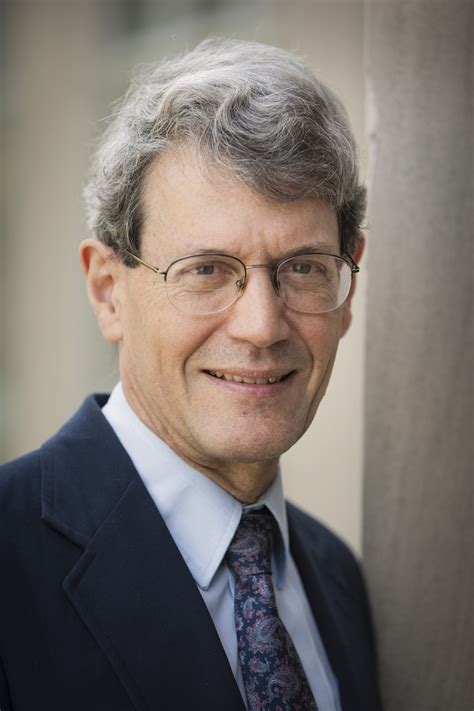Top 931 Partly Quotes & Sayings - Page 16
Explore popular Partly quotes.
Last updated on April 21, 2025.
What is passion? It is surely the becoming of a person. Are we not, for most of our lives, marking time? Most of our being is at rest, unlived. In passion, the body and the spirit seek expression outside of self. Passion is all that is other from self. Sex is only interesting when it releases passion. The more extreme and the more expressed that passion is, the more unbearable does life seem without it. It reminds us that if passion dies or is denied, we are partly dead and that soon, come what may, we will be wholly so.
Instead he thinks up the worst ending imaginable: Hemingway has Catherine die from hemorrhaging after their child is stillborn. It is the most torturous ending I have ever experienced and probably will ever experience in literature, movies, or even television. I am crying so hard at the end, partly for the characters, yes, but also because Nikki actually teaches this book to children. I cannot imagine why anyone would want to expose impressionable teenagers to such a horrible ending. Why not just tell high school students that their struggle to improve themselves is all for nothing?
So if waiting is an aggravation, it is at least partly because we do not like being reminded of our limits. We like doing -- earning, buying, selling, building, planting, driving, baking -- making things happen, whereas waiting is essentially a matter of being -- stopping, sitting, listening, looking, breathing, wondering, praying. It can feel pretty helpless to wait for someone or something that is not here yet and that will or will not arrive in its own good time, which is not the same thing as our own good time.
I regret that there aren't more short stories in other magazines. But in a certain way, I think the disappearance of the short-story template from everyone's head can be freeing. Partly because there's no mass market for stories, the form is up for grabs. It can be many, many things. So the anthology is very much intended for students, but I think we're all in the position of writing students now. Very few people are going around with a day-to-day engagement with the short story.
Recycling is more expensive for communities than it needs to be, partly because traditional recycling tries to force materials into more lifetimes than they are designed for - a complicated and messy conversion, and one that itself expends energy and resources. Very few objects of modern consumption were designed with recycling in mind. If the process is truly to save money and materials, products must be designed from the very beginning to be recycled or even "upcycled" - a term we use to describe the return to industrial systems of materials with improved, rather than degraded, quality.
Art schools are partly the villain here. (Never mind that I teach in them.) This generation of artists is the first to have been so widely credentialed, and its young members so fetishize the work beloved by their teachers that their work ceases to talk about anything else. Instead of enlarging our view of being human, it contains safe rehashing of received ideas about received ideas. This is a melancholy romance with artistic ruins, homesickness for a bygone era. This yearning may be earnest, but it stunts their work, and by turn the broader culture.
The biggest issue for me is whether large numbers of Americans can begin to think that government can actually help make the country a fairer place. And that's partly a matter of policies that achieve results in terms of reducing inequality and raising middle-class and working-class incomes, which have been flat for decades. But it's also symbolic and rhetorical, it's whether Hillary Clinton can - or whoever's president - can persuade Americans that it's happening and that they can begin to trust their elected officials a little bit more and their institutions of government a little bit more.
When you wrote it didn't matter if hysteria sometimes came up in your face and voice (unless, of course, you let it find its way into your "literary voice") because writing was done in merciful privacy and silence. Even if you were partly out of your mind it might turn out to be all right: you could try for control even harder than Blanche Dubois was said to have tried, and with luck you could still bring off a sense of order and sanity on the page for the reader. Reading, after all, was a thing done in privacy and silence too.
Storytelling, you know, has a real function. The process of the storytelling is itself a healing process, partly because you have someone there who is taking the time to tell you a story that has great meaning to them. They're taking the time to do this because your life could use some help, but they don't want to come over and just give advice. They want to give it to you in a form that becomes inseparable from your whole self. That's what stories do. Stories differ from advice in that, once you get them, they become a fabric of your whole soul. That is why they heal you.
People take it for granted that the physical world is both ordered and intelligible. The underlying order in nature - the laws of physics - are simply accepted as given, as brute facts. Nobody asks where they came from; at least not in polite company. However, even the most atheistic scientist accepts as an act of faith that the universe is not absurd, that there is a rational basis to physical existence manifested as law-like order in nature that is at least partly comprehensible to us. So science can proceed only if the scientist adopts an essentially theological worldview.
God made the forests, the tiny stars, and the wild winds-and I think that he made them partly as a balance for that kind of civilization that would choke the spirit of joy out of our hearts. He made the great open places for the people who want to be alone with him and talk to him, away from the crowds that kill all reverence. And I think that he is glad at times to have us forget our cares and responsibilities that we may be nearer him-as Jesus was when he crept away into the wilderness to pray.
in addition to the conditions under which life is given to man on earth, and partly out of them, men constantly create their own, self-made conditions, which, their human origins notwithstanding, possess the same conditioning power as natural things. whatever touches or enters into a sustained relationship with human life immediately assumes the character of a condition of human existence. this is why men, no matter what they do, are always conditioned beings. whatever enters the human world of its own accord or is drawn into it by human effort becomes part of the human condition.
the explanation of the ebb and flow of the women's movement ... is partly psychological. During those early post-war years when successes came thick and fast and were almost thrust upon us, the nation was still under the influence of the reconstruction spirit, when everything seemed possible ... A few years later the nation had reached the stage which follows a drinking bout. It was feeling ruefully in its empty pockets. It did not want to part with anything to anybody. Its head ached. Noble sentiments made it feel sick. It wanted only to be left alone.
It is taken for granted that workers should receive their pay partly in kind, in the form of medical care provided by the employer. How come? Why single out medical care? Surely food is no less essential to life than medical care. Why is it not at least as logical for workers to be required to buy their food at the company store as to be required to buy their medical care at the company store?
It used to be trained professionals doing animation and they were great. Now they have celebrities and famous actors doing the voices, but that does not always work. But I think this film turned out really well, partly because the three of us (me, Ray and Denis) are comedians who are used to doing solo acts and doing certain types of voices. The three of us are New York guys, we all came up the same way in the profession and we are all edgy and enjoy doing family movies. It was a good combination I think.
It is said that the Queen has come to love the Commonwealth, partly because it supplies her with regular cheering crowds of flag-waving picaninnies; and one can imagine that Blair, twice victor abroad but enmired at home, is similarly seduced by foreign politeness. They say he is shortly off to the Congo. No doubt the AK47s will fall silent, and the pangas will stop their hacking of human flesh, and the tribal warriors will all break out in Watermelon smiles to see the big white chief touch down in his big white British taxpayer-funded bird.
In certain circumstances where he experiments in new types of conduct by cooperating with his equals, the child is already an adult. There is an adult in every child and a child in every adult. ... There exist in the child certain attitudes and beliefs which intellectual development will more and more tend to eliminate: there are others which will acquire more and more importance. The later are not derived from the former but are partly antagonistic to them.
I think, because of my background, which is slightly more exotic than the average British actor, I think, I sort of occupied this little niche quite early on of playing the foreign guy. It started way back at drama school, I played an Eastern European heavy, I played the Russian mobster. And I have done all those different ethnic roles, and I think it's partly because of my look, I think I've got an adaptable sort of nondescript ethnicity, which you can't quite pin down, but it's enough to kind of get a flavor of something.
There are times when a market such as housing, transportation or the stock or mortgage market keep rising and people with capital want to join in this growth. Soon the markets become overheated, partly because of the abundance of investment money and speculation. This is when the government should raise interest rates and increase the cost of borrowed money. Governments are shy about doing this because it could cause the very recession. Yet this is the best time to do this so that the inevitable recession never reaches the magnitude of the recent Great Recession.
And Dorothea..she had no dreams of being praised above other women. Feeling that there was always something better which she might have done if she had only been better and known better, her full nature spent itself in deeds which left no great name on the earth, but the effect of her being on those around her was incalculable. For the growing good of the world is partly dependent on unhistoric acts and on all those Dorotheas who life faithfully their hidden lives and rest in unvisited tombs. Middlemarch
There's a long history in the Middle East of "bread intifadas," starting with 1977 in Egypt, when Anwar Sadat tried to lift bread subsidies. People rebelled and poured into Tahrir Square, shouting slogans against the government just like they did earlier this year. Sadat learned his lesson and kept bread subsidies in place, and so did a host of other Middle Eastern dictators - many of whom were propped up for years by the West, partly through subsidized American wheat.
I often say that I'm a Buddhist-Episcopalian. I say that partly to annoy people.I like to annoy people who think that a religion can contain the whole truth. No religion, it seems to me, contains the whole truth. I think it's mad to think that there is nothing to learn from other traditions and civilizations. If you accept that other religions have something to offer and you learn from them, that is what you become: a Buddhist-Episcopalian or a Hindu-Muslim or whatever.
This fighting-shy of every obligation partly explains the phenomenon, half ridiculous, half disgraceful, Of the setting-up in our days of the platform of "youth" as youth. ... In comic fashion people call themselves "young," because they have heard that youth has more rights than obligations, since it can put off the fulfilment of these latter to the Greek Kalends of maturity. ...[T]he astounding thing at present is that these take it as an effective right precisely in order to claim for themselves all those other rights which only belong to the man who has already done something.
I have a deep connection with Mahatma Gandhi, partly because my mother was a very, very staunch Gandhian and brought us up that way. When I was six years old, and all the girls were getting nylon dresses, I was very keen to get a nylon frock for my birthday. My mother said, ?I can get it for you, but would you rather?through how you live and what you wear and what you eat?ensure that food goes into the hands of the weaver or ensure that profits go into the bank of an industrialist?? That became such a checkstone for everything in life.
But because of his telling, many who did not believe have come to believe, and some who did not care have come to care. He tells the story, out of infinite pain, partly to honor the dead, but also to warn the living - to warn the living that it could happen again and that it must never happen again. Better than one heart be broken a thousand times in the retelling, he has decided, if it means that a thousand other hearts need not be broken at all. (vi)
Sometimes differences arise partly from incomplete information. We are finite. And we should admit that there are cases of uncertainty. But often the differences become exacerbated because of sinful inclinations underneath the surface, which incline us to prefer our own ideas and not to submit to what is less comfortable. We must be cautious about accusing anyone else of sin. We don't know people's hearts. But we must also avoid being naïve about the subtlety of sin and the corrupting effects of sin on the mind - our own minds, not only the mind of the other fellow.
I've had my body manipulated so many different times for so many different reasons, whether it's paparazzi photographers or for film posters. The topless Interview shoot was one of the ones where I said: 'OK, I'm fine doing the topless shot so long as you don't make them any bigger or retouch.' Because it does feel important to say it really doesn't matter what shape you are. I think women's bodies are a battleground, and photography is partly to blame. Our society is so photographic now, it becomes more difficult to see all of those different varieties of shape.
The facts are really not at all like fish on the fishmonger's slab. They are like fish swimming about in a vast and sometimes inaccessible ocean; and what the historian catches will depend, partly on chance, but mainly on what part of the ocean he chooses to fish in and what tackle he chooses to use - these two factors being, of course, determined by the kind of fish he wants to catch. By and large, the historian will get the kind of facts he wants. History means interpretation.
The separation of church and state is necessary partly because if religion is good then the state shouldn't interfere with the religious vision or with the religious prophet. There must be a realm of truth beyond political competence, that's why there must be a separation of churches, but if religion is bad and a bad religion is one that gives an ultimate sanctity to some particular cause. Then religion mustn't interfere with the state - so one of the basic Democratic principles as we know it in America is the separation of church and state.
I wanted to be seen as a good person, and never wanted to let people down, but I found it hard to handle the fame or adulation. I didn't feel worthy of it. I was ashamed by who I thought I was because I felt partly responsible [for the abuse] and I was never able to enjoy the stuff I should have been able to enjoy. My first thought when I won the Tour was: 'My God, I'm going to be famous', and then I thought, 'He's going to call'. I was always waiting for that phone call. I lived in fear that anyone would ever find out.
London is the most multicultural, mixed race place on Earth. And I love that. I grew up in a neighborhood in London where English wasn't necessarily the first language - maybe because of that, I love to travel. Every penny I've ever saved has been spent on airline tickets to different corners of the world. I think that's partly from growing up in London. I've taken that bit with me - this ability to fit in with any culture and be fascinated and respectful with any culture all started from growing up in London.






























